 Loading... Please wait...
Loading... Please wait...Seborrheic Dermatitis Picture Gallery
Posted by Bella on Seborrhea on 13th Jul 2021
Seborrheic Dermatitis Pictures - Scabs On Scalp - Sores - Crusty Build Up - Yellow Dandruff Photos
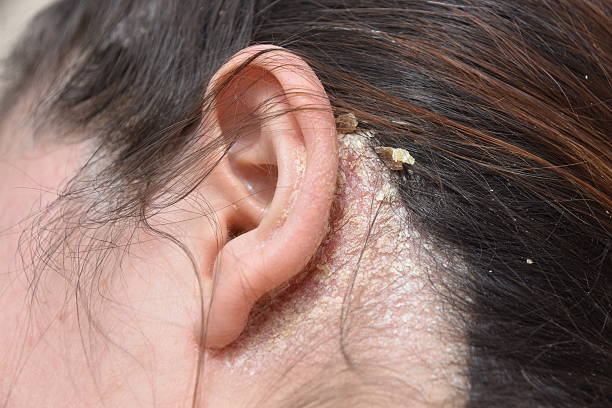
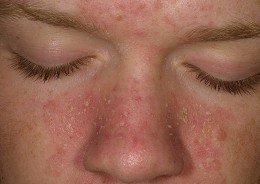
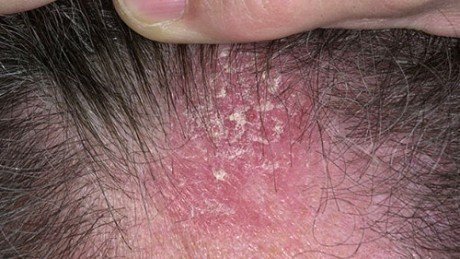
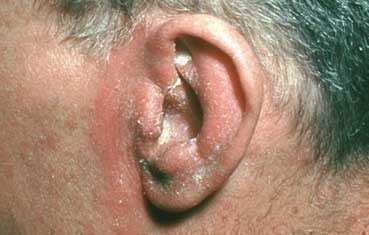
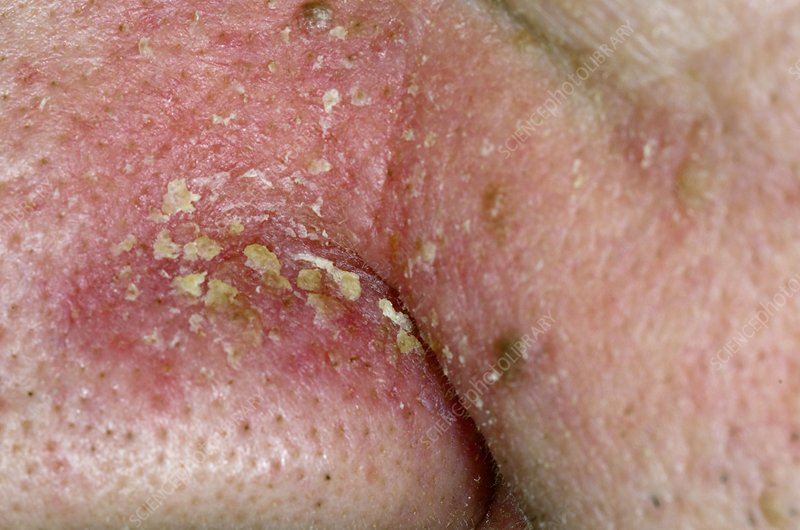
Seborrheic Dermatitis can affect the face, scalp, nose, corners of the mouth, ears, behind the ears, hair line, back of the head and just about anywhere on the scalp or even in the beard area as well as the cheeks and the neck.
The see the different products that we offer for Seborrheic Dermatitis Click Here and For Sores on the Head Click Here
Seborrheic dermatitis happens more on areas with a lot of oil glands, such as ears and eyebrows. Scalp eczema is usually where there are wear patterns in hair because of rubbing. It can be anywhere but tends to show up at the part due to friction from rubbing back and forth against their head when trying to itch their scalp. Seborrheic dermatitis causes itchy ears, eyebrows, nose and chin area along with redness which could resemble mosquito bites on occasion (because what you have mistaken for dirt was really ointment that has gotten rubbed off). Scalp eczema might not cause much itching especially if it is on the scalp.
The primary areas of the body that will be affected by seborrhea are the face, behind the ears, in the ears, scalp in both front hair line, back of the head and the the crown, chest, and eyebrows.
Seborrheic dermatitis is closely related to dandruff (malassezia) -- both are forms of "yeast" or "fungus" overgrowth on human skin -- a kind of so-called "candida", which many believe is an opportunistic yeast. It's primarily transmitted by touch, and often begins as candida tinea capitis or Candida albicans. This can happen because of too many anti biotics or a weakened immune system.
Cures are tough but total control ca be with using a Shampoo such as Zincplex and also a diet change, using natural antifungals like herbs including thyme and zinc pca for itch relief; avoiding anything too extreme in temperature.
Recent Posts
- » Straight Shootin' These Are Our Top 20 Country and Western Bachelorette Party Ideas
- » 10 Country and Cowgirl Bachelorette Party Gifts for Under $20
- » Celebrate Curves with These 10 Funny Thick Fil A Apparel Items! #1 Bachelorette Bridal Shower Gift
- » Top 5 Hubby and Wifey Apparel Ideas: Trends for Couples in 2024
- » 10 Fun and Fabulous Wifey Gifts for the Bachelorette Party
